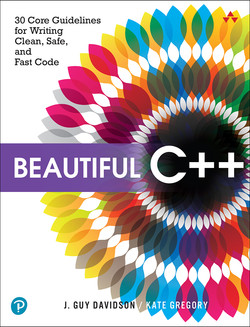Beware of Unsafe Conversions from size_t to int -- Giovanni Dicanio
When you have a size_t value and need to convert it to an int (for example: to pass it to a function expecting an int parameter), your C++ compiler may emit a warning message, and you may quickly silence it with a static_cast<int>. But, is that really safe? Or could that hide some subtle and "interesting" bugs?
Beware of Unsafe Conversions from size_t to int
by Giovanni Dicanio
From the article:
You can have some fun experimenting with these kinds of bugs with this simple C++ code [...]
So, these conversions from size_t to int can be dangerous and bug-prone, in both 32-bit and 64-bit builds.

 In this article, we delve into the equivalent helper functions for C# and JavaScript, which are simpler due to the inherent behavior of references in these languages, eliminating the need for explicit shared pointer conversions.
In this article, we delve into the equivalent helper functions for C# and JavaScript, which are simpler due to the inherent behavior of references in these languages, eliminating the need for explicit shared pointer conversions.  A code design pattern I’ve used a lot in recent times is the “optional-based polymorphism” that looks like a delegation to another type that might not be available. It might be an implementation of the FCoI-principle (Favour Composition over Inheritance).
A code design pattern I’ve used a lot in recent times is the “optional-based polymorphism” that looks like a delegation to another type that might not be available. It might be an implementation of the FCoI-principle (Favour Composition over Inheritance). A new episode of the series about SObjectizer and message passing:
A new episode of the series about SObjectizer and message passing: This is a book review of “Beautiful C++,” written by two well-known C++ experts and educators: Kate Gregory and Guy Davidson. The book’s unique style gives us a valuable perspective on effective and safe C++ code.
This is a book review of “Beautiful C++,” written by two well-known C++ experts and educators: Kate Gregory and Guy Davidson. The book’s unique style gives us a valuable perspective on effective and safe C++ code. A new episode of the series about SObjectizer and message passing:
A new episode of the series about SObjectizer and message passing: